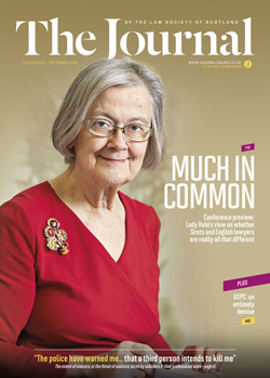Copyright: underpinning control
Last month, the Court of Justice of the European Union ruled that the concept of “communication to the public” within article 3(1) of the Copyright Directive (2001/29/EC) applied to the unauthorised re-posting of a photograph online. The decision, Land Nordrhein-Westfalen v Renckhoff (Case C-161/17) (7 August 2018) provides welcome reassurance to copyright owners that their rights to control the communication of works which they post online are protected, even if they fail to impose any explicit restrictions on the reproduction or reuse of those works.
Background
The national proceedings, from which the reference to the CJEU arose, relate to copyright litigation against a school over the use by one of its pupils of a photograph taken by Renckhoff. The photo was downloaded from an online travel portal for a presentation that was accessible on the school website. It had originally been posted on the travel portal without any restrictive measures preventing it from being downloaded. Renckhoff claimed that he had given a right of use exclusively to the operators of the portal, and posting on the school website infringed his copyright.
The German Federal Court of Justice sought a preliminary ruling on whether “communication to the public” in article 3(1) covered the posting on one website of a photograph, which had previously been posted online without restriction and with the copyright owner’s consent on another website.
Article 3(1), which requires EU member states to provide authors with the exclusive right to authorise or prohibit any communication to the public of their works, was considered in detail by the CJEU.
“New public”
A key issue in the court’s decision was whether the photograph had been communicated to a “new public”. Reference was made to Svensson (C-466/12), which concerned the communication of a work by means of a hyperlink, and decided that in order to be treated as a communication to the public, the protected work had to be communicated using specific technical means, different from those previously used or, failing that, to a new public.
The CJEU agreed with Renckhoff’s argument that Svensson did not apply, because communicating a work by a new posting (as opposed to a hyperlink) meant that the copyright owner was no longer in a position to exercise their power of control over the initial communication of that work. It held that the re-posting of a photograph on another website, other than that on which the initial communication was made, must be treated as making such a work available to a new public. The court considered that in the circumstances, the public taken into account by the copyright holder when he consented to the communication of his work on the website on which it was originally published, was composed solely of users of that site and not of the users of the website on which the work was subsequently published, or other internet users.
To hold that the new posting of a work previously communicated on another website did not constitute making available to a new public would amount to an undue exhaustion of the right to communication to the public, contrary to article 3(3) of the directive. Further, it would deprive the copyright owner of the opportunity to claim a reward for the use of their work.
The court commented that it was irrelevant that the copyright holder did not limit the ways in which internet users could use the photograph: the enjoyment and the exercise of the right provided for in article 3(1) might not be subject to any formality.
Additionally, the CJEU was at pains to differentiate between the re-posting of content and using hyperlinks. It held that unlike hyperlinks, which according to its case law contributed in particular to the sound operation of the internet by enabling the dissemination of information, the publication on a website without the authorisation of the copyright holder of a work previously communicated on another website did not contribute, to the same extent, to that objective.
Wider impact
The decision will be welcomed by copyright holders as confirmation of their rights to control the communication of works posted online, even in scenarios where they have imposed no explicit restriction on the reuse of those works. On the other hand the decision highlights the importance of third parties obtaining consent before re-posting content, even when there are no restrictions imposed.
As the court made clear, there are practical reasons for differentiating the current scenario from the rulings concerning hyperlinks, in particular the risk of loss of control copyright owners would suffer if parties could freely re-post their works on other websites. It is arguable that this distinction successfully serves to protect against mass distribution of copyrighted content.
In this issue
- Confidence restored: internal investigations and legal privilege
- Court reforms: still an unknown quantity
- Ruled out of court?
- Uncovering the environment (1)
- Medical death: a case to answer
- Reading for pleasure
- Opinion: Kerry Trewern and Rhona McNair
- Book reviews
- Profile: Ryan McCuaig
- President's column
- Developing digital services
- People on the move
- Leading judgment
- Health check
- Open to attack
- Claims: beating the trigger
- Storage: time for digital
- GSPC: eulogy for a friend
- Relevant persons: a challenge
- New specialist land registration practice launches
- Good enough reason?
- Copyright: underpinning control
- Writing means writing
- Rent moves: two crucial hoops
- Debtor wins in policy decision
- Scottish Solicitors' Discipline Tribunal
- KIR: the time bomb explodes
- The guideline goal
- GC NextGen: a network for you?
- Your Law Society of Scotland Council members
- Public policy highlights
- Double boost for Society's AML team
- Ask Ash
- Practice rights and the impact of Brexit: working in the EU
- Acting as notary: what do I need to know?
- Engagement letters: a practical approach
- Uncovering the environment
- Paralegal pointers






